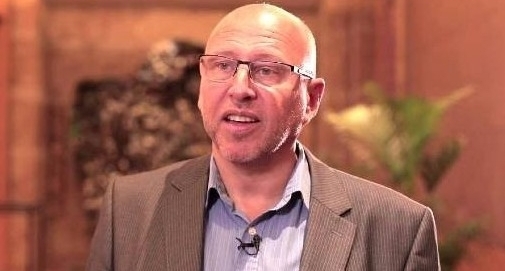Glyn Hughes to quit IATA as global head of cargo in Jan 2021
Glyn Hughes, current global head of cargo at International Air Transport Association (IATA), leaves the airlines industry organisation amidst the Covid-19 pandemic.

September 16, 2020: The current global head of cargo at the International Air Transport Association (IATA) Glyn Hughes has decided to leave the job as part of IATA’s restructuring programme initiated in response to the critical financial crisis the industry finds itself in as a result of the Covid-19 pandemic.
Hughes is currently serving his notice period and will leave IATA at the end of January 2021 after working for three decades in IATA.
As part of the restructuring programme, IATA also introduced a voluntary redundancy and early retirement programme allowing employees to make their choice. “I applied for and have been accepted,” said Hughes. According to him, under the current restructuring programme at IATA a number of positions will be lost and some programmes be ceased. He is hopeful that the cargo department won’t be too badly impacted.
When The STAT Trade Times reached out to Hughes and asked him the reason for his decision to apply for the voluntary redundancy and early retirement programme he said, “It goes without saying that this was the most difficult decision as I am passionate about this great industry, the tremendous work IATA does and most importantly the great colleagues who perform that work. But life is about timing, opportunities and the ability to generate new leaders, create new ideas, follow new innovations and drive the continuing need for industry evolution and change.”
Responding to the question of his replacement he said, “It is too early to look at what happens next and that’s really for the IATA senior management to determine in terms of what direction they would like the cargo activity to go. I have committed to help the organisation through this transitional period.”
Hughes was appointed the global head of cargo at IATA in June 2014 succeeding Des Vertannes with the mission to continuing the modernisation of air cargo industry. He joined IATA in 1991 to enhance and expand the Cargo Accounts Settlement Service with the aim to maintain very low levels of agency default and decreasing overall operating costs for members.
On the immediate impact of IATA’s organisational resizing on the cargo programmes, Hughes said, “Some programmes will inevitably need to be accelerated such as the digital programmes whilst others perhaps need a slight refocusing. I am hopeful that the existing set of programmes will all continue.”
“The IATA Cargo Advisory Council, which is comprised of 16 of heads of cargo from some of the most significant cargo carriers have guided IATA cargo extremely effectively on the agenda that’s been established and the Covid-19 crisis has reinforced much of this agenda,” he added.
For the moment Hughes is focussed on working with the cargo team and senior management on programme continuity and transition. “I will take time later on to consider what I do next. I have enjoyed 36 years in this great industry and still have the passion to help it move forward,” Hughes said.
Watch out the last video interview, we recorded of Glyn Hughes in February this year at Air Cargo India in Mumbai.
A number of people that we spoke to are baffled at the decision of Hughes and IATA accepting his application to leave under the programme. And they are sorry to see Hughes, an affable and well-liked person, go. “This is the time that the air cargo industry needs continuity of strong leadership and Hughes was fully into the thick of things.” This is the time the world needs cargo to be fully up to speed, especially in a life and death situation for the world. According to them, the imminent Covid-19 vaccine movement will need a lot of care in transportation and uniform standards are quite important. Some of them are also very critical of IATA’s priority for the cargo department.
Hughes was part of a media briefing last week along with IATA’s chief economist Brian Pearce giving the industry an update on the preparation for an industry wide collaboration to ensure smooth distribution of a potential Covid-19 vaccine as early as November this year.
"We know the procedures well. What we need to do is scale them up to the magnitude that will be required," Hughes said during the virtual briefing.
At the same event he also launched ‘IATA ONE Source’, an online platform which helps the air cargo industry match shipping needs with the availability of infrastructure capabilities and certifications of service providers across the value chain. This is particularly timely amid the Covid-19 crisis, when shippers of medical supplies and pharmaceuticals need accurate information for time- and temperature-sensitive shipments.
With over three and a half decades in the air cargo industry Hughes says he is so honoured to have been involved in so many wonderful projects and initiatives.
The close-knit air cargo community certainly will miss Hughes for sure.

